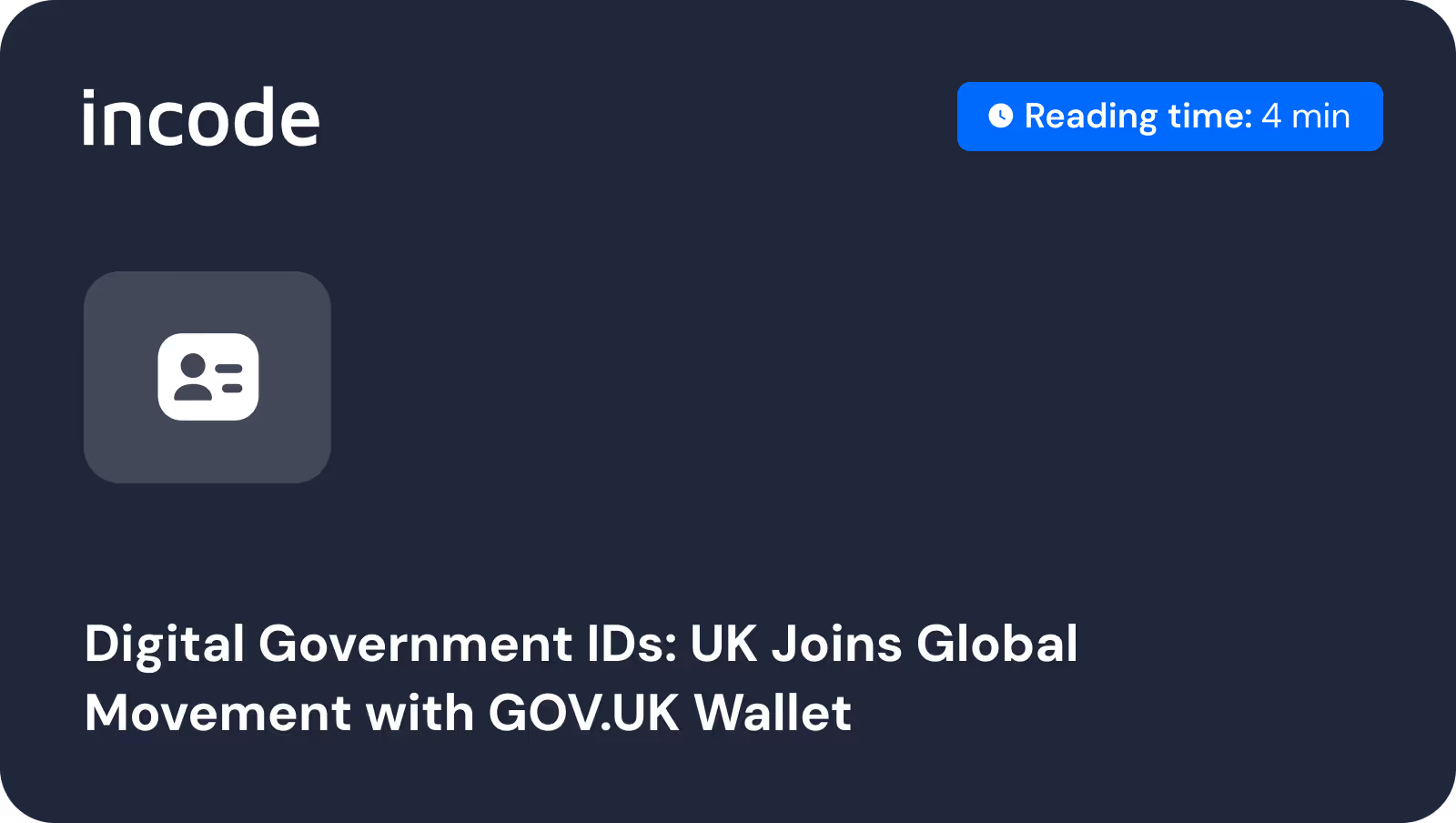Digital Government IDs: UK Joins Global Movement with GOV.UK Wallet


The wallet in your pocket will soon be a relic of the past. As governments worldwide embrace digital transformation, physical ID cards are becoming obsolete.
The UK is poised to join this movement with the launch of its new digital government ID system in summer 2025.
The digital identity revolution is happening around the world with countries including Estonia, Sweden, Singapore, Belgium, India, Germany, Canada, and Japan having already implemented digital government IDs.
Fifteen US states also offer digital driver’s licenses, with Idaho set to join them after House Bill 78a passed the state House in March 2025.
The McKinsey Institute emphasizes that digital identification can increase access to services, promote inclusion, and drive economic growth. When done right, it can:
The GOV.UK Wallet app will become available to download during summer 2025, transforming how British citizens interact with government services, securely storing official documents on smartphones.
The rollout follows a carefully planned timeline:
Summer 2025: The GOV.UK Wallet launches with digital Veteran Cards as the first supported documents, serving as a testing ground for the broader system.
Late 2025: Digital driving licenses enter pilot phase, allowing users to verify their identity and age using their smartphones instead of physical cards.
By 2027: All government services will offer digital alternatives alongside traditional paper and card credentials, creating a comprehensive digital ecosystem.
This momentum reflects a fundamental shift in how we think about identity verification. In an increasingly digital world, why should proving who you are still depend on a piece of plastic that can be lost, stolen, damaged, or forgotten at home?
Physical IDs are also more difficult to verify remotely and can create friction in increasingly digital processes like online banking or remote hiring.
Digital identity solutions promise to eliminate these pain points while introducing capabilities that were previously impossible: real-time verification, secure remote access, and seamless integration with digital services, transforming everything from airport security to online age verification.
The digital approach takes security to a new level. The GOV.UK Wallet incorporates multiple layers of protection that physical documents simply cannot offer:
Facial recognition technology ensures only the rightful owner can access their documents. Two-factor authentication adds an extra security barrier, while remote deactivation capability means lost or stolen devices can be immediately secured—a significant advantage over physical IDs that remain vulnerable until replaced.
Incode is playing a crucial role in the digital identity revolution, and was last year named a Leader in the first-ever Gartner® Magic Quadrant™ for Identity Verification.
By integrating directly with authoritative sources like government systems of record (SoRs), Incode ensures deterministic verification—essentially turning identity confirmation from a probabilistic guess into a confident “match/no match” result. This represents a fundamental leap beyond traditional document-based systems.
Its fully automated, frictionless process verifies a user’s face in under 40 milliseconds, delivering a seamless and secure experience without manual inputs or document uploads.
This biometrics-first approach not only maximizes onboarding conversions but also strengthens fraud defenses against increasingly sophisticated threats like deepfakes, injection attacks, and spoofing.
Backed by 35 proprietary AI/ML models and an in-house fraud lab, Incode consistently delivers industry-leading accuracy across all demographic groups, while maintaining stringent privacy standards by avoiding the exchange of personally identifiable information (PII).
These security measures address one of the biggest concerns about digital identity systems while highlighting the vulnerabilities of traditional documents that we’ve simply accepted for decades.
The UK’s measured approach—emphasizing security, choice, and inclusivity—offers a promising model for other nations considering similar initiatives that reshape society’s relationship with official documentation.
The implications extend far beyond government services—digital identity systems streamline healthcare access, simplify financial services, and create new possibilities for secure online interactions.
From ancient civilizations using seals and signatures to today’s smartphone-based verification systems, the evolution of identity documentation reflects our changing world. A digital identity revolution is underway, the UK’s GOV.UK Wallet is a step towards a future in which the most secure way to prove identity is as simple as taking a quick selfie.
Digital identity systems deliver the security, convenience, and accessibility that our connected world demands while preserving the choice and flexibility that democratic societies require.
Learn more about Incode’s biometric identity verification solutions.